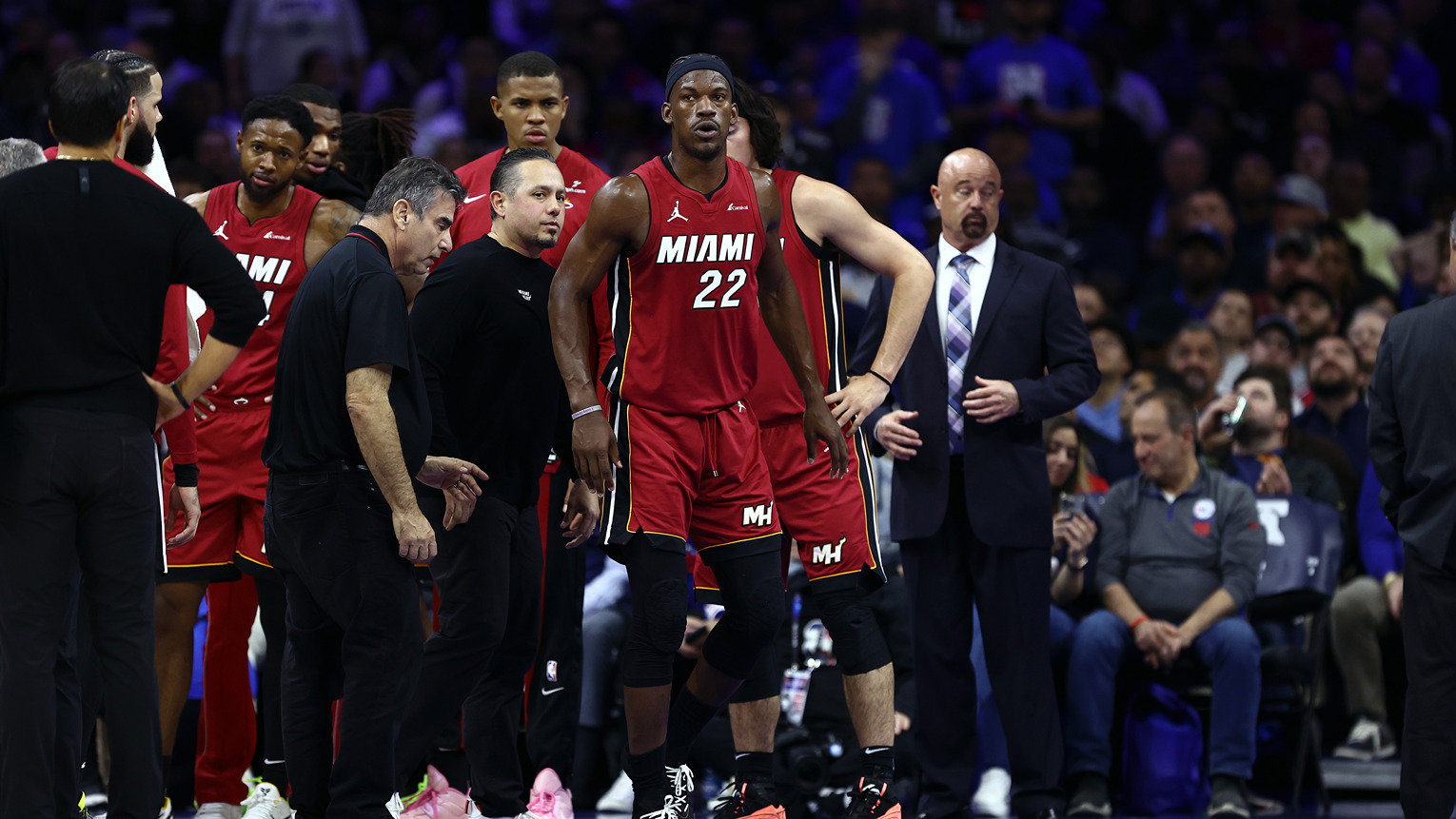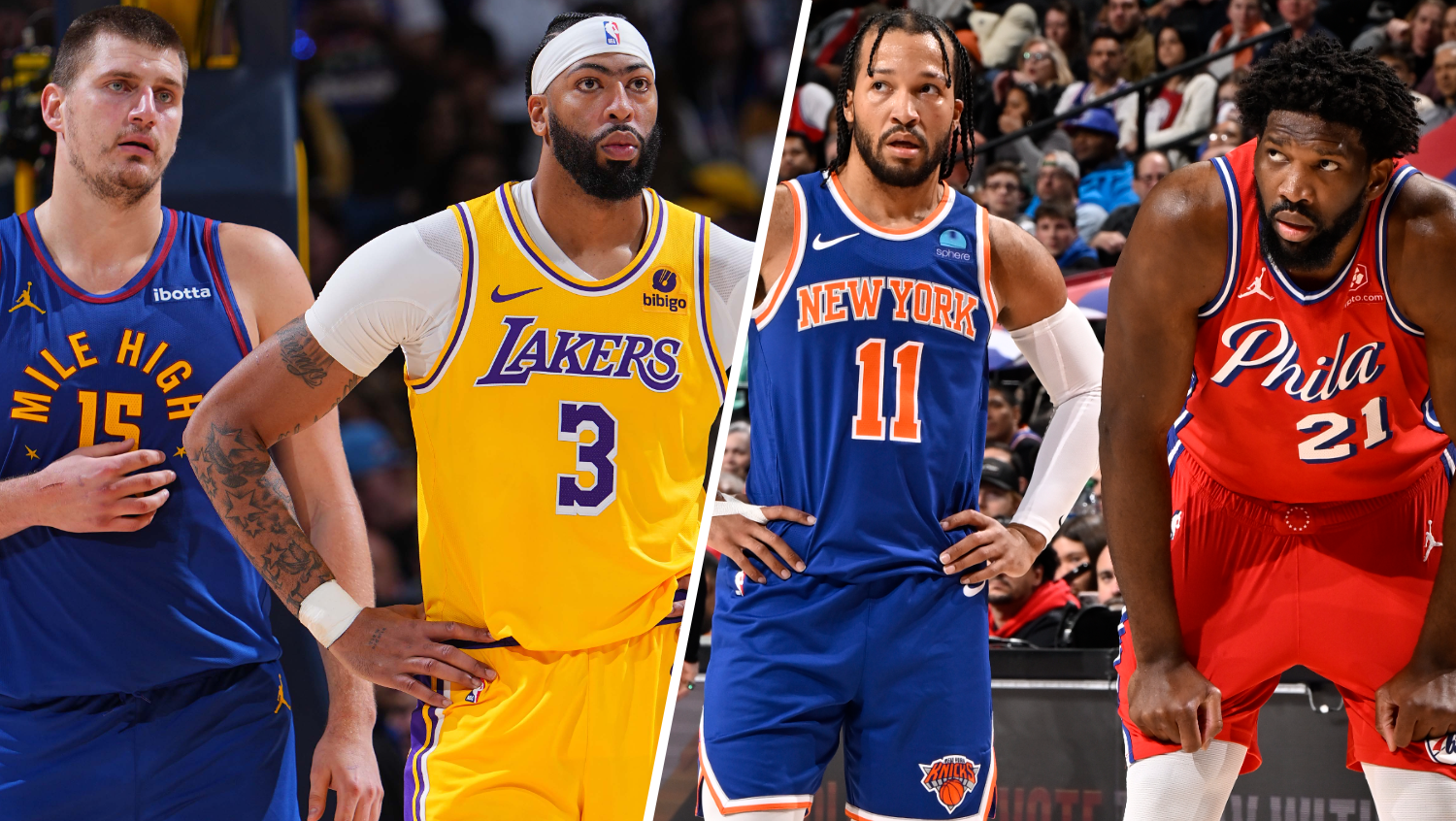Brett Brown left the Spurs in 2013 to become the head coach of the Sixers. Four years since his departure, his influence is greatly felt by his former team.
During the Spurs' trip to Philadelphia on Wednesday, head coach Gregg Popovich, and players alike, raved about Brown’s 11-plus seasons with the organization.
“He’s the most incredible, positive, sort of force that I’ve ever been around in my life,” Popovich said. “I don’t just say that because we worked together for all those years. He was with me from Day 1, putting our program together. So I know how intense he is, I know how much he loves the game, I know how he teaches, and when I would get down he’d be the positive one to lift me up.
“It’s just incredible to me that he stayed so even temperament-wise and still is in love with teaching guys. He doesn’t care if it’s somebody who’s a pickup for 10 days or a high draft pick. He just enjoys the process and he just never gives in."
Brown had an established coaching career in Australia when he first came to the Spurs on a volunteer basis in 1999. Popovich had heard about Brown’s reputation overseas as well as his college experience playing for Rick Pitino at Boston University. Popovich was intrigued by what Brown could bring to the table.
“I had heard good things from people back East about him and checked him out a little bit,” Popovich recalled. “... I thought that would be a good addition, just to see what I could learn from him, that kind of thing. As soon as he got there, we started putting it together, the way we wanted to run the program. We became fast friends and never changed since then.”
Brown returned to Australia after that first stint. He was then hired by the Spurs in 2002 as the director of player development.
NBA
That season, a rookie guard from Argentina, a former 57th pick was joining the organization after years of international experience. Brown was tasked with tapping into the talents of Manu Ginobili.
“He was basically the guy assigned to me,” said Ginobili, now a 15-year NBA veteran. “We spent a lot of time together. We worked out a lot of hours. I absolutely love the guy. High-quality coach, even higher quality guy, fun to be around. I’m completely biased talking about him. I really appreciated him. He’s one of my favorite people, not coaches.”
Brown and Popovich struck a coaching balance that shined in the Spurs’ championship-winning culture. When Popovich was hard on the team, Brown, who was promoted to assistant coach in 2006, was there to lighten the message. Their dynamic helped breed success, including four NBA titles (1999, 2003, 2005, 2007).
“He’s always the cup-is-half-full kind of guy,” Popovich said. “With that, he’s got a really cool sense of humor. He’s a funny dude. The players appreciated it. He knew how to laugh at himself, he knew how to make them laugh. Win or lose, how to go on to the next game, or turnover or missed shot, how to go on to the next play. Sometimes I’d be more focused on something else and he would be there to slap somebody on the butt after I just drilled them, especially Tony Parker.”
That constant encouragement had long-lasting effects on the Spurs. Take Danny Green as an example. Green joined the Spurs in 2010, already on his second team in as many years after being waived by the Cavaliers.
Brown urged Green, who shot a mere 27.3 percent from long range his rookie season, to keep taking his looks no matter how many times he missed. Green listened and went on to set the record for most three-pointers made in the NBA Finals in 2013. Brown has been instilling the same mantra in Robert Covington on the Sixers.
“Brownie’s amazing,” Green said. “He was always the positive guy and kept things even-keeled. He always told me to shoot the ball every time. … He’s always that guy to brighten up the practice, brighten up the day, made our lives easier for us, made our jobs easier for us.”
As the years went on, Brown forged special bonds with the players. He poured into them and got to know them as both athletes and people away from the game. In turn, the players learned about Brown as more than a coach. Spurs guard Patty Mills, who also played for Brown on the Australian national team, was struck by his family values.
“I love him. He’s one of my all-time favorite coaches,” Mills said. “I remember how passionate he is. He uses a lot of his time and energy to making sure that whatever he’s doing, he gets the most out of it. It’s good when you have a leader or a coach that puts everything into it ... I think the word I would use to describe him is ‘genuine.’”
Brown’s tenure in San Antonio came to an end in the summer of 2013. The Spurs lost to the Heat in Game 7 of the NBA Finals that June. Both Brown and fellow assistant coach Mike Budenholzer (Hawks) accepted head coaching jobs for the following season. Brown’s presence was quickly missed when he parted ways to begin his career in Philadelphia.
“When he left and also Bud left, it was just different,” Green said. “It was after we lost, it was a tough summer, it was a tough year. ... Until we got back to the playoffs and back to the championship and won it, finally, the whole year was kind of a drag. … Everybody was hard on each other. There was a lot of tension, a lot of hostility, a lot of still thinking about that previous summer, previous year of losing.
"It was very hard and we lost that guy that mediates the locker room and the coaching staff — him and Bud. It was very different until we won it and then it kind of eased up a little bit. But still, since he’s gone, the locker room’s been different."
There was an adjustment period for Brown as well. His time with the Sixers has been far from smooth. The team went 47-199 in his first three seasons during the phase known as “the process.” It seemed hard enough to remember everyone’s name in the revolving door of players let alone win games. Still, Brown kept the locker room together.
Brown finally has the opportunity to coach a foundation of players with a more clear direction of the team’s future, centered around Joel Embiid and the anticipated return of first overall pick Ben Simmons.
“I think he’s the perfect fit for this job to turn things around, keep guys positive, stay above water,” Green said. “If there was any guy to do it throughout a whole season with things going in the opposite direction, it’s him.”
The Sixers matched last season’s win total (10) in early January and went 10-5 on the month. They were one of the most successful teams in the league during that stretch before hitting a current five-game skid without an injured Embiid. The Spurs looked past the record and see progress from years past.
“It’s night and day,” Parker said. “They’re playing a lot better. They’re understanding what Brett wants on the court and moving the ball and playing good defense. Their energy was pretty good and I feel like they’re going in the right direction. When everybody’s going to be healthy, they’re going to be pretty good.”
Popovich has gone up against Brown twice in the last week. Even though the Spurs won both of those games, Popovich had plenty of compliments after Wednesday’s contest for the job Brown is doing.
“They executed better than we did,” Popovich said. “They moved the ball better than we did. It was very impressive. I thought they outplayed us in a lot of ways. Their grit, their hustle, their denying, their defensive aggressiveness was great. … Totally impressed with the Sixers.”
Brown's time with the Spurs meant just as much to him as it did to those he worked with and coached. He brought the same approach to the Sixers and it hasn't changed, win or lose. For Brown, basketball always has been just as much about those involved with it as the final score.
“You went through five championships — four of which you won — a bunch of All-Stars, a lot of incredible memories,” Brown said. “But it always gets back to relationships. It always gets back to people. The defensive accountability was what I remembered most at the start and then it blossomed into this freestyle Euro ball and people passing, along with the accountability defensively.
“Somewhere in that world, you hope you had a small part in the way they do things.”
A small part seems to be an understatement.


